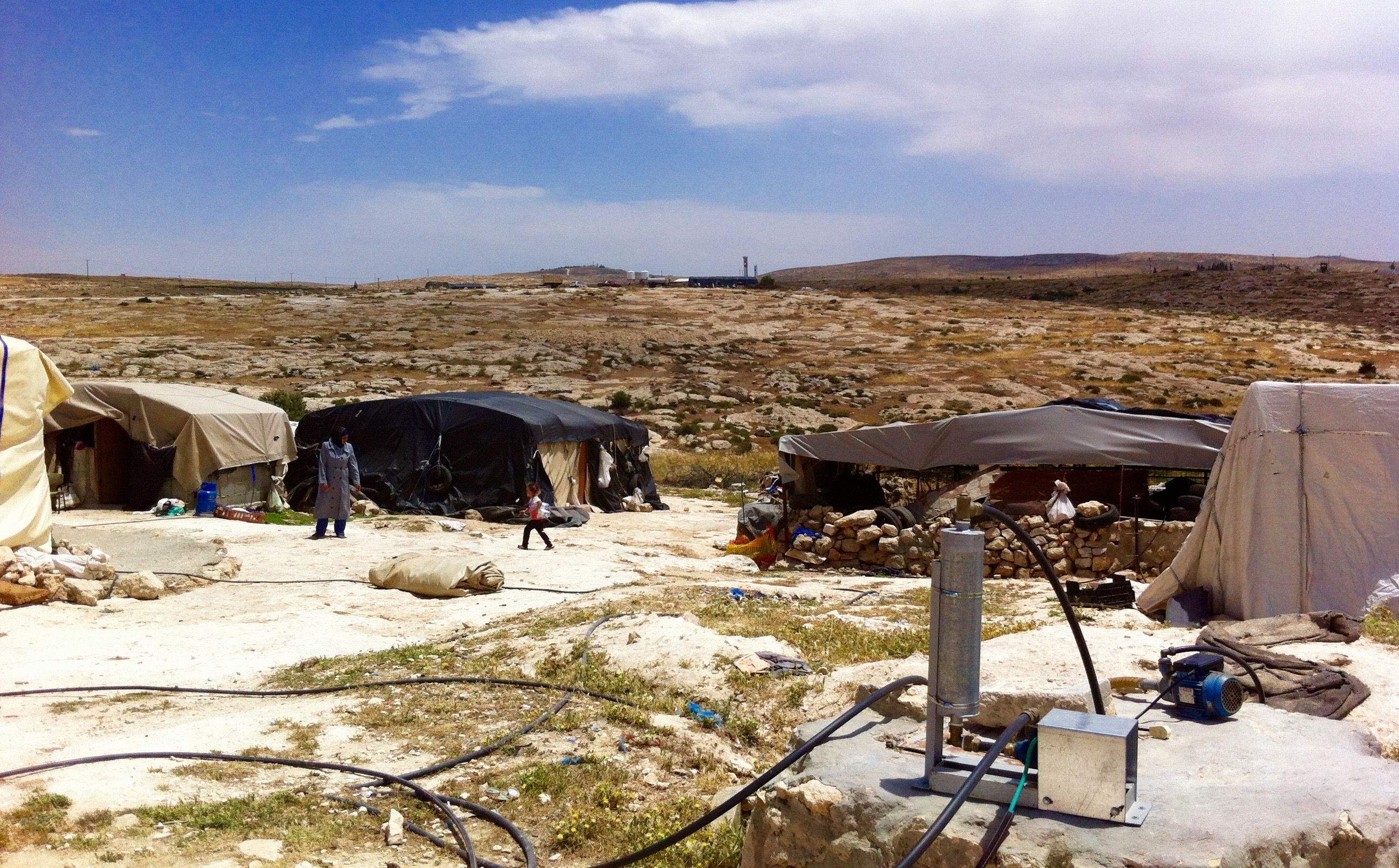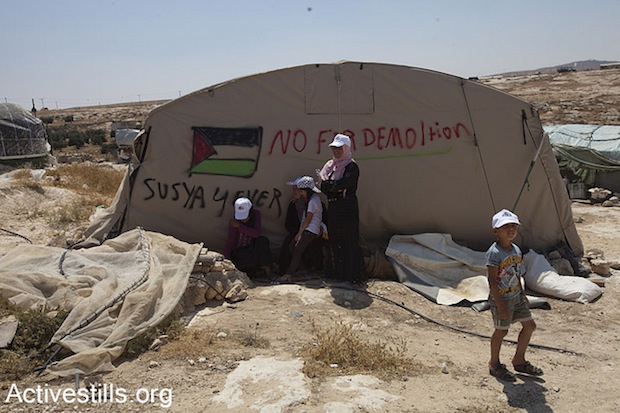Tag: South Hebron Hills
-
Action alert: Susiya village at high risk of demolition
11th May 2015 | Operation Dove | At Tuwani, South Hebron Hills, Occupied Palestine POPULAR STRUGGLE COORDINATION COMMITTEE AND POPULAR STRUGGLE COMMITTEE OF SOUTH HEBRON HILLS CALLS FOR INTERNATIONAL PRESENCE IN SUSIYA VILLAGE Where: Susiya Village, South Hebron Hills When: From now, permanently What: Popular Struggle Coordination Committee and Popular Struggle committee of South Hebron Hills…
-
Israeli State threatening immediate demolition of entire Palestinian village
5th May 2015 | Operation Dove | At-Tuwani, Occupied Palestine This article was originally published as a press release by Operation Dove. The entire Palestinian village of Susya is in danger of demolition and expulsion. By refusing to issue an interim order preventing preemptive demolitions before their case is heard, the Israeli High Court is…
-
South Hebron Hills – farming under occupation
27th April 2015 | International Solidarity Movement, Team Al Khalil | South Hebron Hills, Occupied Palestine Located in the tip of the West Bank, the South Hebron Hills are dotted with farming and shepherd communities. We are currently in the wheat harvest season and the children are spending their last few weeks at school before…



